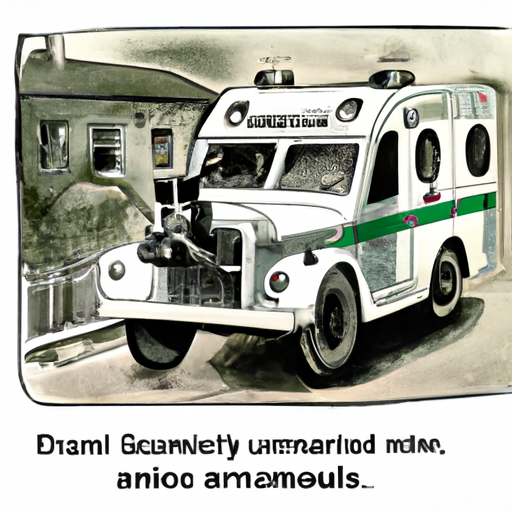If you’ve ever noticed your canine companion raising their head and letting out a howl at the sound of a passing siren, you might have been left puzzling over why they do that. Is it because the noise hurts their ears? Or is it because they’re trying to communicate something? The reasons are intriguing and reveal a lot about a dog’s instincts and their acute senses.
- Table of Contents
- Unraveling the Mystery: Why Dogs Howl at Sirens
- The Call of the Wild: Howling as a Form of Communication
- The Sensory Sensitivity: Understanding Dogs’ Hearing
- The Mystery of Sirens: Why They Trigger Howling
-
How to Respond: Addressing Your Dog’s Howling
-
Key Takeaways
- Dogs might howl at sirens due to their instinctual communication methods, acute hearing, and the unique frequency of sirens.
- It’s important to respond appropriately to your dog’s howling to ensure their comfort and well-being.
Unraveling the Mystery: Why Dogs Howl at Sirens
The behavior of dogs howling at sirens likely has roots in their ancestry. Dogs are descendants of wolves, which are known for their howling communication. Wolves howl to communicate with their pack, signaling their location or calling the pack together. It is thought that modern dogs retain this instinctual behavior, though its purpose has changed somewhat in domestic dogs[^1^].
While dog behavior can be complex and varies greatly between individual dogs, the propensity to howl at sirens can be traced back to these three main factors: their instinctual communication methods, their acute hearing, and the unique frequency of sirens.
[^1^]: Why do dogs howl?
The Call of the Wild: Howling as a Form of Communication
Howling is a form of communication in many species of canids, including wolves and dogs. It’s used to convey a variety of messages, such as signaling their location to other pack members or warding off potential intruders. When your dog hears a siren, they may interpret it as a call from a distant pack member and respond with a howl of their own.
In addition to this instinctual behavior, howling can also be a response to certain sounds or situations. For instance, some dogs may howl when they hear music, when they’re left alone, or even when they’re playing with their favorite squeaky toy. It’s a versatile form of communication that can express everything from joy to stress[^2^].
[^2^]: Dog howling: What it means and what you should do
The Sensory Sensitivity: Understanding Dogs’ Hearing
Dogs possess an acute sense of hearing that greatly surpasses that of humans. This heightened sensitivity allows dogs to hear sounds at a much higher frequency than we can, which is part of the reason why they may react to sirens so intensely.
The frequency of a siren often falls within the range that dogs are especially sensitive to, which can stimulate them to howl in response. It’s not necessarily that the sound hurts their ears, but rather that it’s a strong stimulus that they react to.
The Mystery of Sirens: Why They Trigger Howling
Sirens produce a high-pitched sound that can be similar to the frequency of a dog’s or wolf’s howl. This sound can trigger a dog’s instinct to respond in kind. The fluctuating pitch of a siren could also be intriguing or exciting to a dog, prompting them to join in with their own howl.
To understand more about the impact of various sounds on dogs, check out this article on how different sounds affect dogs.
How to Respond: Addressing Your Dog’s Howling
If your dog frequently howls at sirens, it’s essential to handle the situation appropriately to ensure their comfort and well-being. Here are a few steps you can take:
- Remain Calm: Your dog will look to you for cues on how to react. If you remain calm during the siren, your dog will likely follow suit.
- Offer Comfort: If your dog seems distressed, try comforting them with soothing words or a gentle touch.
- Distract Them: Try to redirect your dog’s attention with a toy or a command they know well.
- Consult a Professional: If your dog’s reaction to sirens is causing distress or disruption, consider seeking advice from a professional dog behaviorist.
To learn more about managing your dog’s behavior, visit managing dog behavior and training tips for your dog.
Frequently Asked Questions
Why does my dog howl at sirens but not other sounds?
Sirens often produce a high-pitched sound that falls within the frequency range that dogs are sensitive to. This, combined with the fluctuating pitch of the siren, can trigger a dog’s instinct to howl.
Is the sound of sirens harmful to my dog’s ears?
While sirens are loud and dogs have sensitive hearing, the sound of a siren itself is not likely to be physically harmful to your dog’s ears. However, it can be startling or distressing to some dogs, so it’s important to monitor your dog’s reaction and comfort them if necessary.
Should I stop my dog from howling at sirens?
If your dog’s howling is causing distress or disruption, you may want to consider ways to manage this behavior. This could include distracting them when a siren is heard or consulting with a professional dog behaviorist.
The fascinating spectacle of dogs howling at sirens provides a glimpse into their wild ancestry and their remarkable sensory abilities. By understanding their instincts and sensitivity, you can better appreciate this behavior and know how to respond in a way that ensures their comfort and well-being.



